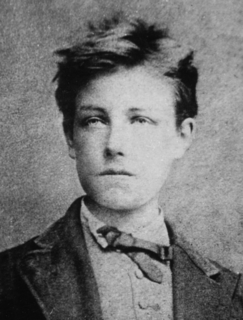A Quote by Theodor Adorno
If philosophy is still necessary, it is so only in the way it has been from time immemorial: as critique, as resistance to the expanding heteronomy, even if only as thought's powerless attempt to remain its own master and to convict of untruth, by their own criteria, both a fabricated mythology and a conniving, resigned acquiescence.
Related Quotes
Human beings are compelled to live within a lie, but they can be compelled to do so only because they are in fact capable of living in this way. Therefore not only does the system alienate humanity, but at the same time alienated humanity supports this system as its own involuntary master plan, as a degenerate image of its own degeneration, as a record of people's own failure as individuals.
For black people in the western hemisphere, if you can't generate a mythology that creates models of heroism and power out of the mythology that you had, then that means that somehow the mythology you had was not only feeble and weak, but that you are ultimately a powerless people. That's a notion that, I think, that can't be accepted.
Though freedom and wealth are both good things which most of us desire and though we often need both to obtain what we wish, they still remain different. Whether or not I am my own master and can follow my own choice and whether the possibilities from which I must choose are many or few are two entirely different questions. The courtier living in the lap of luxury but at the beck and call of his prince may be much less free than a poor peasant or artisan, less able to live his own life and to choose his own opportunities for usefulness.
We are and remain such creeping Christians, because we look at ourselves and not at Christ; because we gaze at the marks of our own soiled feet, and the trail of our own defiled garments.... Each, putting his foot in the footprint of the Master, and so defacing it, turns to examine how far his neighbor’s footprint corresponds with that which he still calls the Master’s, although it is but his own.
Lord, if I thought you were listening, I'd pray for this above all: that any church set up in your name should remain poor, and powerless, and modest. That it should wield no authority except that of love. That it should never cast anyone out. That it should own no property and make no laws. That it should not condemn, but only forgive.
I think you can find yourself in life perhaps not really being the master of your own life and it is within your own will and tenacity whether you switch the roles or not. So I think it has more to do with that, a person's individual will to be master or servant. I've been both in my own life and I prefer the former.
...I is another. If the brass wakes the trumpet, it’s not its fault. That’s obvious to me: I witness the unfolding of my own thought: I watch it, I hear it: I make a stroke with the bow: the symphony begins in the depths, or springs with a bound onto the stage. If the old imbeciles hadn’t discovered only the false significance of Self, we wouldn’t have to now sweep away those millions of skeletons which have been piling up the products of their one-eyed intellect since time immemorial, and claiming themselves to be their authors!
Each man had only one genuine vocation - to find the way to himself....His task was to discover his own destiny - not an arbitrary one - and to live it out wholly and resolutely within himself. Everything else was only a would-be existence, an attempt at evasion, a flight back to the ideals of the masses, conformity and fear of one's own inwardness.
If you go to a master to study and learn the techniques, you diligently follow all the instructions the master puts upon you. But then comes the time for using the rules in your own way and not being bound by them....You can actually forget the rules because they have been assimilated. You are an artist. Your own innocence now is of one who has become an artist, who has been, as it were, transmuted.... You can't have creativity unless you leave behind the bounded, the fixed, all the rules.
What is unknown is the fulfillment of your own unique life, the likes of which has never existed on earth. And you are the only one who can do it. People can give you clues how to fall and when to stand, and when you are falling and when you are standing, this only you can know. And in the way of your own talents is the only way to do it.
The attempt to live that way, the attempt to treat everybody - it fails all the time - but the attempt to treat people as equals is a good attempt. It's a very good attempt. And there have been very few governments that have come anywhere near it in the past. The Greeks began to, the Romans began to - they both failed.




































